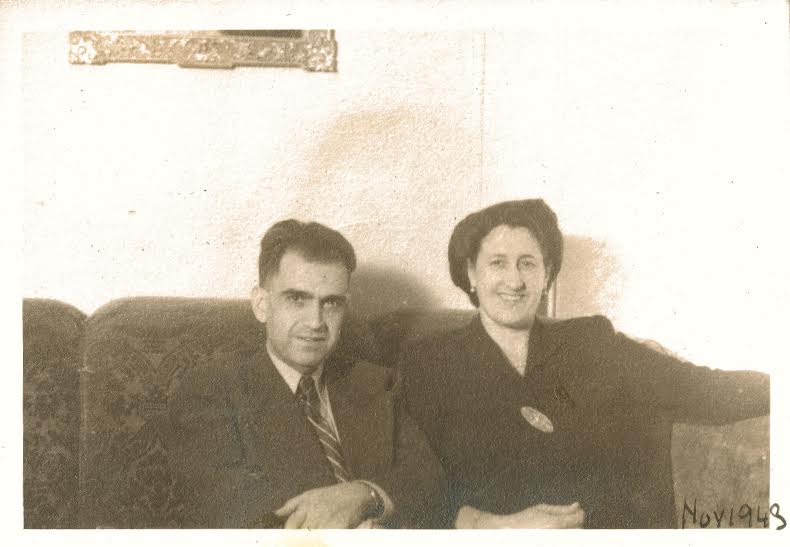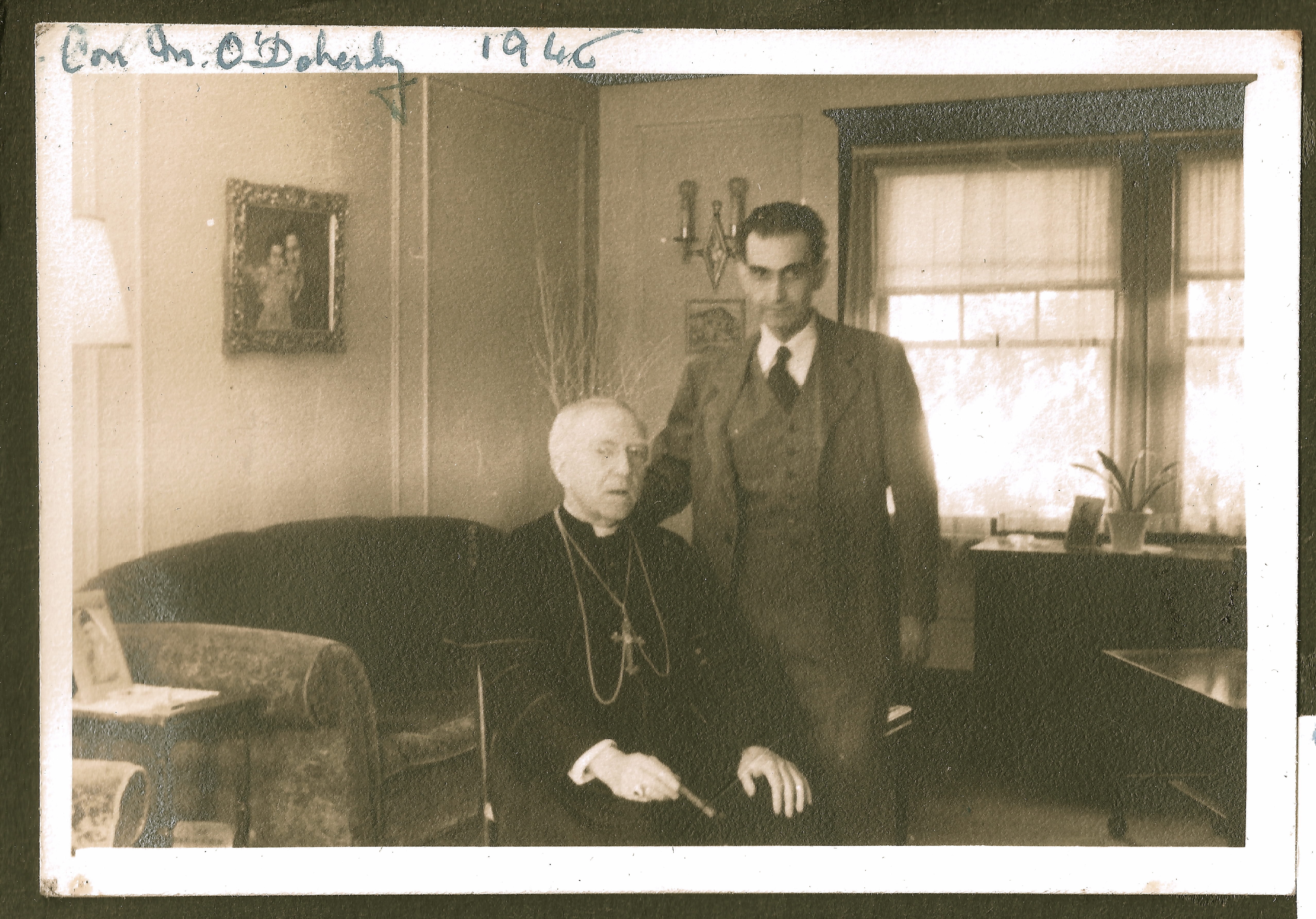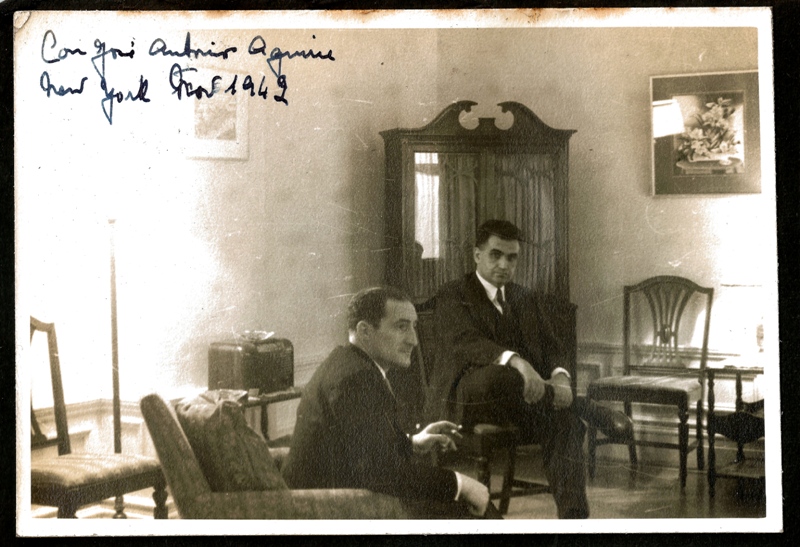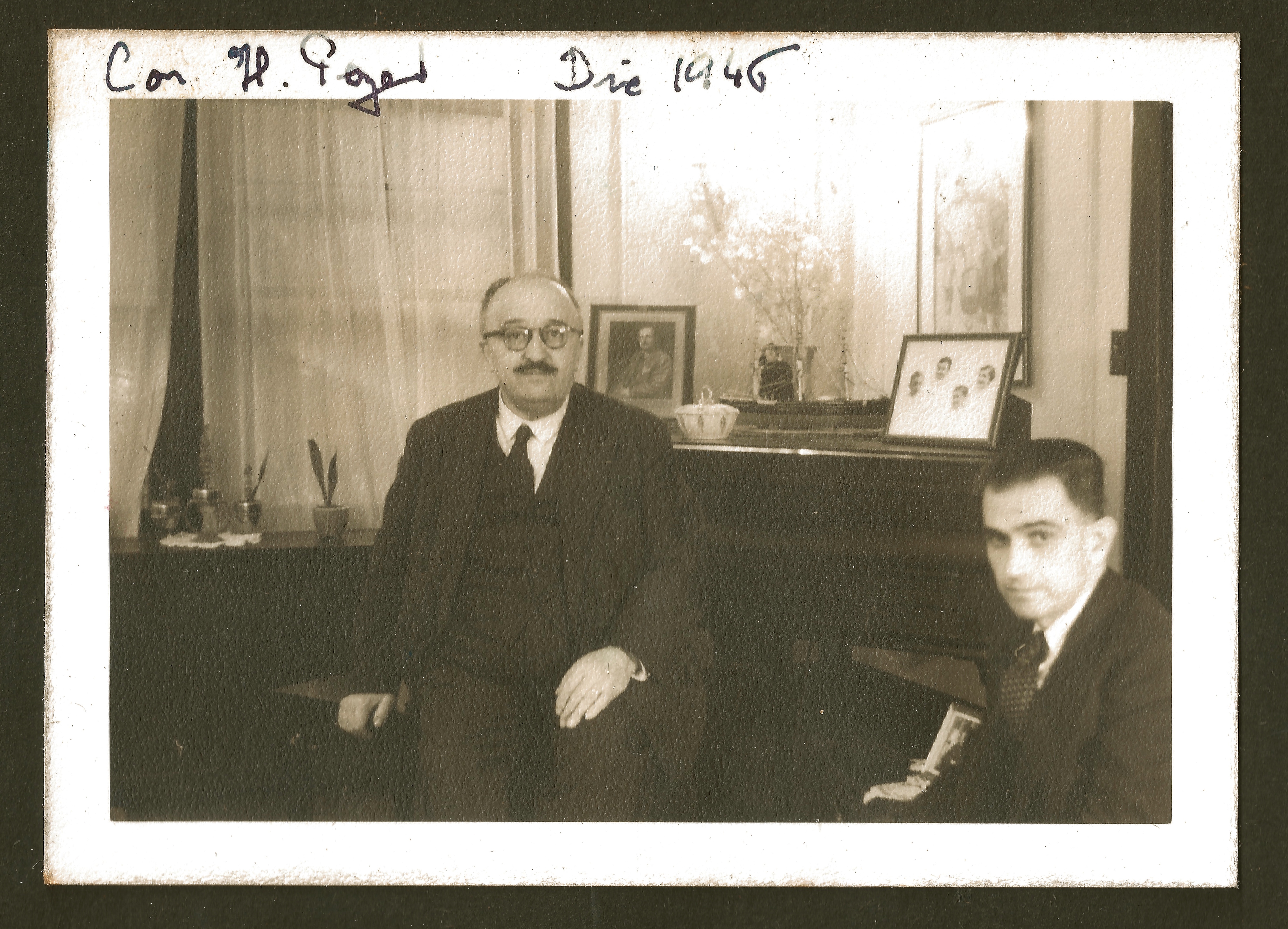by Mikel Aizpuru
An old cliché says that nationalism vanishes when traveling. Certainly this does not apply to Manuel María de Ynchausti, a Philippine-Basque who travelled the world on several occasions, who lived on three continents and became indispensable on different occasions, as we will see, for achieving several projects related to the Basque Government and culture in the central years of the 20th century. In 1998 Jean-Claude Larronde dedicated a monograph entitled Etorri handiko mezenas bat (an inspired patron), edited by the Instituto Bidasoa and we refer to it for all those interested in deepening their knowledge about the life events of our protagonist.

Our protagonist with his wife Ana Belén de Larrauri de Ynchausti in 1943 at his home in White Plains, New York. Ynchausti Foundation Archives. Photo: Ynchausti Foundation Archives
The Ynchausti family had settled in the Philippines during the colonial period and opted to remain in the Asian Islands after the loss of Spanish control, since it had managed to create the first multinational company with offices in other countries. The Casa Ynchausti y Cía brought together companies related to agriculture, industry, finance and transport. Manuel María de Ynchausti Romero was born in Manila on October 19, 1900. Manuel María was born under U.S. sovereignty, a circumstance that became crucial for some situations later in his life.
Son of a prominent family of business people, the first years of Ynchausti´s life were spent between the Philippines and Europe. In fact, in 1920 he settled in Spain to study law. In Madrid he met Ricardo Leizaola and thanks to him, he became closely associated with Basque Nationalism, although he never affiliated officially. In 1926 he married Ana Belén de Larrauri, with whom he had five children: Antonio, Jokin, Miren, Arantza and Ana. In 1933, he sold part of his assets in the Philippines, handed out thousands of hectares among farmers, donated another large tract of land to the Catholic Church and settled in San Sebastian.
Basqueness and Catholicism were grounding factors that marked his public life, devoting an important part of his funds to various projects in both fields, both in the Philippines, as well as in the Basque Country and in the United States. He financed the supplement Igandea (Sunday), written in Basque and distributed in the Guipuzcoan parishes. His economic power and philanthropic work allowed him to, in addition, meet important personalities from different countries and even to be received privately by Pope Pius XI.

Manuel Ynchausti with Monsignor Michael James O’Doherty, Archbishop of Manila, at Mr. Ynchausti’s home in White Plains, New York, November 1942. Photo: Ynchausti Foundation Archives
At the beginning of the Spanish Civil War, Ynchausti and his family were evacuated by the U.S. Navy in San Sebastian and settled in the town of Ustaritz, in the province of Lapurdi, a town which became, with the interlude of the Second World War his habitual residence. Once Bilbao was defeated, Basque political organizations and many refugees came to Ustaritz and other towns in the Northern Basque Country. Ynchausti, besides subsidizing the Basque Government, the direction of the Basque nationalist party, or the nationalist Basque Union ELA-STV, covered all expenses out-of-pocket for a colony of Basque children in the village of Jatsu.
In the socio-political field, he was the architect of the creation of both Comité National Catolique d’Accueil aux Basques (1937), and the Liga Internacional de Amigos de los Vascos (LIAB, 1938), (International League of friends of Basques). Important religious leaders and French political and intellectual figures belonged to this last group. The LIAB intended to give political cover to the activities of the Basque Government in the case that the French authorities, as was the case, recognized the Franco regime. Its appearance is a sign of the Ynchausti concern for the international aspects of the Basque case.
Few days before the beginning of the Second World War, Ynchausti came to the United States for what was going to be a short stay on his way to the Philippines, and it became his residence of seven years. Ynchausti took advantage of this time to try to bring the Basque cause to the North American Catholic community, very pro-Franco, with different levels of success and to gather support for the European allies, France and Great Britain, in their fight against Nazism. He also tried to create an international Catholic Relief and a World Association of Basques, both with limited endurance.
On the other hand, Ynchausti financed the trip of the Lehendakari (President) José Antonio Agirre from Goteborg to America, endorsed entry into U.S. territory, got him a position as Professor at the University of Columbia and gave him his network of contacts with authorities and American leaders. Without the support of Ynchausti, quite possibly Agirre and the Basque Government in exile, would not have been able to retain their referential character, not only for the Basque community, but also for the Spanish Republicans or the European Christian democracy, nor would they have survived the maelstrom of the Second World War. Ynchausti, in any case, always remained in the background, mainly because of his character and his ongoing cardiac problems.

Manuel Ynchausti with Lehendakari Agirre at Mr. Ynchausti’s home in White Plains, New York, November 1942. Photo: Ynchausti Foundation Archives.
In 1947 Manuel María de Ynchausti returned to Ustaritz, which suited him with its moderate climate, compared to the tropical Philippines, and he remained there for the rest of his life. He stayed away from political activity, voluntarily, although he always maintained very close relations with Lehendakari Agirre, as well as with various Nationalist leaders. He felt much more comfortable in the cultural field, and thus participated in the organization of the VII Convention of Basque Studies (Biarritz, 1948). There, he presented a discourse, one of his few public writings, with extensive data of Basques residing in different countries around the world; a clear sample of his network of relationships and of the Basque diaspora. He was also a board member of the Basque Museum of Bayonne and promoter of the VIII Convention of Basque Studies (Bayonne 1954). In all these events he always tried to help project Basque expansion across the world and was always willing to give his financial support.
From then on, his health problems were aggravated and hardly allowed any public activity. He died on April 17, 1961, after a long illness, a year later than Lehendakari José Antonio Agirre, who owed so much to the discreet assistance of Ynchausti.



Do you have any information about the Family Tree of the de Ynchausti’s up to the current generation? Thank you
My name is Kathy Zarraonandia. My grandmother Anjela Goitia from Gamiz Spain worked the Ynchausti’s in White Plains NY. We went to stay with Mrs Ynchausti in France after her husband died. Do you have more info on their life during their stay in White Plains, NY